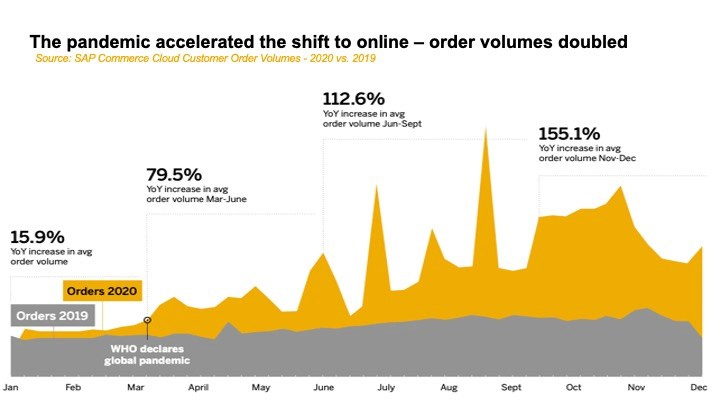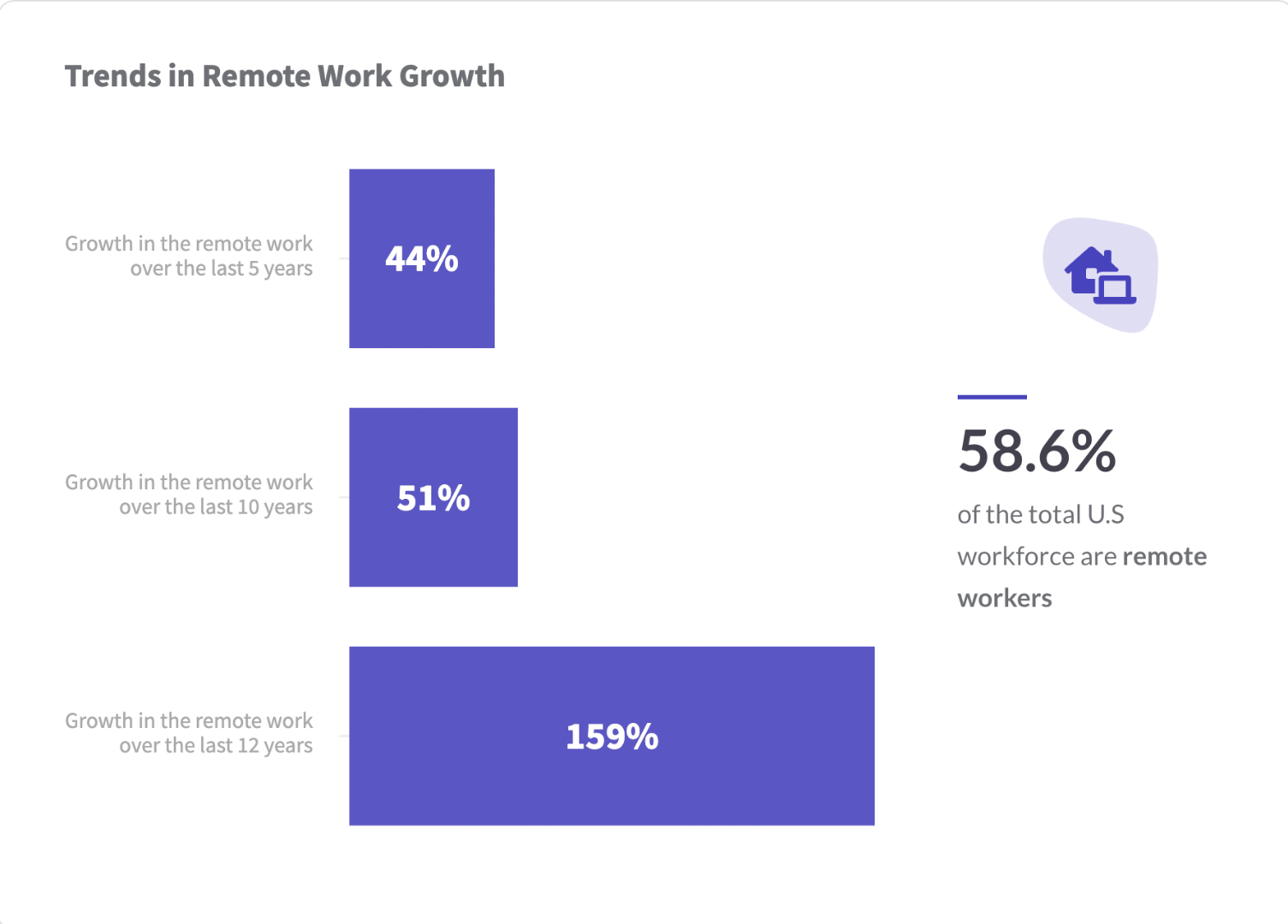The repercussions of the Covid-19 pandemic have changed the world of business as we once knew it. As office-based businesses continue to move online, retail falls and e-commerce booms, you may be wondering just how hard it is to start a new business within a post-pandemic landscape.
With Covid-19’s push for digitalisation making it easier than ever to start up an online business, the question is, just how successful could you be against a web full of competitors?
Read on to find out the pros and cons of starting a business post-pandemic and the all-important questions you need to ask yourself before you start.
1. Is Moving Into E-commerce The Right Move?
For those of you looking to move into the world of retail, it’s time to weigh up the benefits of moving into e-commerce in a post-pandemic online landscape.
2020 brought more e-commerce competitors than ever before, rising from 19% of e-commerce based retailers in February 2020 to a whopping 35% by the end of the year.

(Image Source: The Future Of Commerce)
As the pandemic accelerates the shift to online, the question you must ask yourself before starting an online e-commerce business is can I compete?
In order to rival e-commerce giants such as Amazon, new entrepreneurs need to be smart and digitally focused. The key here is to get to know your niche, your competitors and your audience in order to create a business plan that is unique, sellable and provides a new angle in the e-commerce world.
2. How Can Your Ensure Covid-19 Safety Within Your Business?
Covid-19 has created a wave of new challenges for businesses looking to startup or reopen. If you’re looking to create an office-based start-up, the first question you need to ask yourself post-pandemic is, how can you ensure Covid-19 safety within your business?
New entrepreneurs need to focus on developing safety guidelines for new employees to follow as they step into the office environment to ensure their workforce is both safe and healthy.
Make sure your facility is regularly disinfected and employees are given hygiene spaces, Covid-19 safety plans and a post-pandemic based support system as they continue to adjust to the new realities presented by the pandemic.
3. Have You Researched Your Rivals?
You’d be surprised at just how many new business leaders fail to research their rivals as they begin to embark on starting a new business.
Your rivals can be your best source of demographic information and key knowledge about what is working and more importantly what isn’t. The key here is to create a start-up that offers your niche what your competitor is not currently giving them.
Tap into your social listening skills and start looking for competitor reviews and social media mentions in order to formulate a business plan that builds on the foundation of customer gratification.
4. Have You Researched Your Audience?
Another area to prioritise is audience research. When starting a post-pandemic business, your demographic knowledge is the key to your success. Staying on top of consumer trends within your niche will increase website engagement as you position yourself within the heart of what your consumers are currently searching for.
Use platforms such as Google Trends to research demographic trends and start by taking an audit of your audience to gauge a better understanding of their age group and the values that drive their purchasing.
5. Could Working From Home Be The Answer?
Did you know that 77% of remote workers say that they are more productive in a WFH environment?
When starting up a post-pandemic business, working remotely is most definitely something to consider as you move forward. It won't just save you office-based costs, but a remote working system widens your scope for a global workforce and provides you with more assets to invest in new digital work systems.

(Image Source: FindStack)
As you can see here, 58% of the total US workforce are remote-based workers post-pandemic, making the WFH trend one that is here to stay. So the question is, would it work for the type of service you are providing and could it logistically slot into your startup business plan?
6. Have You Prioritised That Post-Pandemic Equipment?
For those of you who have opted for a WFH start-up, the key to success is creating a productive setting from home that will encourage your workforce to be both happy and healthy.
Have you prioritised ergonomic equipment such as back supporting chairs and blue light glasses for screen-related eye strain? Do you have the budget to invest in digital systems such as Zoom, Monday and Slack? Investing in communication tools can aid the WFH experience and help bring more of the office to the house.
Prioritising your workers’ welfare is a great way to ensure productivity as you continue to build your business. In fact, studies show that a happy workforce is 13% more likely to perform well and contribute to business success.
7. Are You On Top Of The Marketing?
Last but certainly not least, you need to start thinking about your marketing efforts if you want to start a business post-pandemic.
As the future of business continues to move online, so does the competition for business promotion. As social platforms such as TikTok boom and online banner ads become the new magazine features, it’s time to start questioning your digital marketing skills if you want to see success.
The key here is to look at what techniques grab the attention of your demographic and more importantly which one’s don’t. For example, for younger consumers, social media marketing is a priority if you want to boost brand awareness, whereas email marketing could be key for a more mature audience.
Prioritising your marketing efforts will boost page engagement, increase brand authority and most importantly put your new post-pandemic business on the map.


.png)

